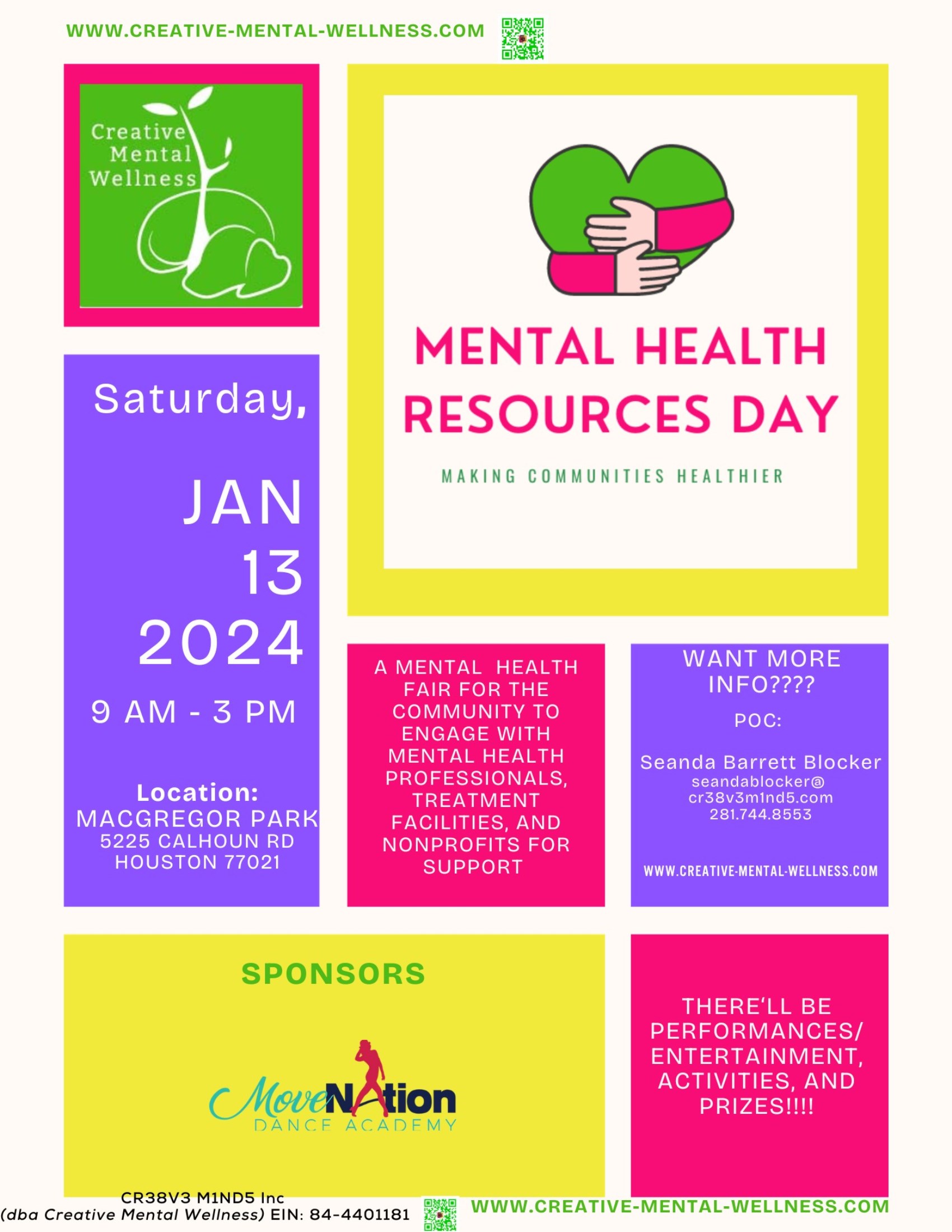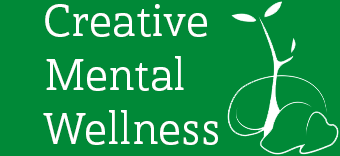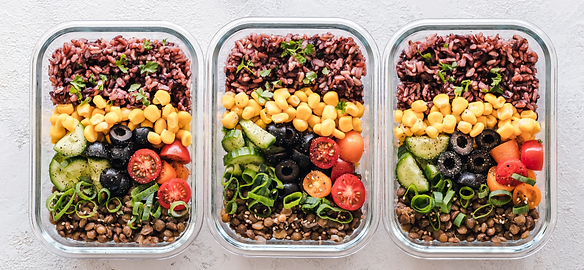December 2023 Newsletter
Updates!
Mental Health Resources Day
Keep an eye out in the coming weeks for updates on our Mental Health Resources Day Fair! The event is going to be held at MacGregor Park in Houston, Texas. A special thanks to our premiere sponsor Move Nation Dance Academy and the local government for their cooperation! Additional details will be provided on our website or you can reach out to our founder, Seanda Blocker, at seandablocker@cr38v3m1nd5.com.

Holidays are Bluer for Some Than Others
The holiday season is often associated with feelings of warmth, joy, and belonging. However, for some people, this time of year can evoke feelings of loneliness, stress, and anxiety. These feelings are often referred to as the “holiday blues.” The holiday blues are a real phenomenon, but they are likely to have different effects than you might think.
The holiday blues can be experienced on a continuum, ranging from lower levels of dysthymia and sadness to more severe depression. The reasons for sadness during the holidays are varied and can include financial stress, loneliness, grief, and unrealistic expectations. According to a survey by the American Psychological Association, 38% of people surveyed said their stress level increased during the holiday season.
The holiday blues can affect anyone, regardless of age. A poll of more than 1,000 adults by the Principal Financial Group found that 53% of people experience financial stress due to holiday spending, despite the fact more than half set budgets for their holiday spending. Children can also experience the holiday blues. According to the National Alliance on Mental Illness (NAMI), 68% of children report feeling sad or dissatisfied during the holidays.
There are several things that can be done to address the holiday blues. Easier steps to take for oneself include getting enough sleep, eating a balanced diet, spending time outdoors, and staying active. Seeking professional help is also an option. According to NAMI, 64% of people with an existing mental illness report that the holidays make their condition worse. It’s important to recognize the signs of significant holiday blues or depression in other people and to encourage them to seek help.
It’s important to note that there is a difference between the holiday blues, which typically go away when the holiday season ends, and more severe depression, which lasts longer and interferes with activities of daily living. If the holiday season passes and you’re still feeling depressed or anxious, it’s best to consult with a medical professional. However, if speaking with a therapist or counselor is too overwhelming, talking with a trusted friend or family member can be an easier way to initially address uncomfortable feelings.
While there is solid evidence that the suicide rate in the United States does not spike around the holidays, the holiday blues can still be a difficult time for some people. According to the U.S. Center for Health Statistics, the suicide rate is highest between April and August. However, low suicide rates don’t necessarily mean that the holiday blues aren’t a real phenomenon. It’s important to recognize the signs of significant holiday blues or depression in other people and to encourage them to seek help.
In summary, the holiday blues are a real phenomenon that can affect anyone, regardless of age. The reasons for sadness during the holidays are varied and can include financial stress, loneliness, grief, and unrealistic expectations. There are several things that can be done to address the holiday blues, including seeking professional help. It’s important to recognize the signs of significant holiday blues or depression in other people and to encourage them to seek help. Remember, the holiday blues are temporary and can be overcome with the right support and resources.
Holiday Traditions and New Year’s Resolutions
DAISY’s favorite ideas
DAISY knows that holidays can be tough, but she would like to share some thoughts on holiday traditions, including New Year’s resolutions.
- Decorating, whether with many or few decorations, homemade or bought, can be fun and help your home feel merry!
- If you have pets, it can be cute and entertaining to take pictures of them with holiday or winter items (think scarves, Santa hats, etc.)
- Baking. Home made cookies, dog treats, banana bread and other snacks can be really therapeutic and help you bond as a family or with your friends!

Resolutions can be motivating for some, but it can also feel overwhelming or disappointing. Most people compare themselves to others, especially with social media being so prevalent. Keep in mind that most social media profiles only shine a spotlight on the “best” parts of people’s lives, and pictures and videos can be heavily edited. Some resolutions that might be more accessible for most people can include things like:
- getting outside for 15 minutes/day
- eat 2 servings of vegetables/day
- cook one new recipe every week
- read a book every month
- volunteer at a new place (you could start writing letters to inmates through Letters for Change!)
Happy holidays, all!
Thank you for joining us on this mental health journey! Follow us Instagram, Facebook or LinkedIn to stay up to date.
Your friend,







